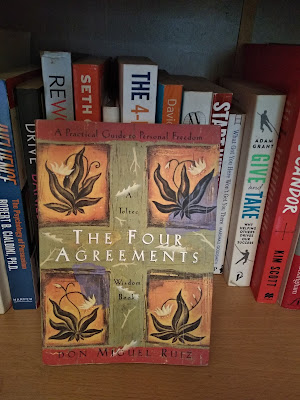I read Mark Manson's "The subtle art of not giving a f*ck" last Sept. It was hard-hitting and clarified a lot of niggling questions in me. I loved the book and I'd re-read it soon.
The author's second book "Everything is f*cked - A book about Hope" is yet another hard-hitting one, questioning many of our preconditioned beliefs. He starts with the importance of hope in our lives and how it helps us to deal with the Uncomfortable Truth. As he expands on the factors that bring hope, the chapter on self-control was full of brilliant insights. He correlates our Consciousness to a car. There can only be a single driver, who takes decisions on which direction to go, where to take a left/right turn, when to stop etc - is this driver our Thinking brain or Feeling brain? I was honestly surprised by the answer. The author says, "The Feeling brain drives our Consciousness Car because ultimately, we are moved to action only by emotion." He also reiterates, "Every problem of self-control is not a problem of information or discipline or reason, but rather, of emotion".
He then goes on to explain different concepts that attempt to provide Hope and their associated pitfalls - religion, ideology, extreme lifestyles, and our values. He then makes a convincing argument on why we shouldn't be relying on Hope in the first place - "Hope depends on the rejection of what currently is". A similar thought I read in J Krishnamurti's books as well.
Another powerful chapter for me was the "Feelings economy" where the author declares that the world runs on one thing - feelings. It was super interesting to read about how ideas and diversions that help people to avoid or numb their pain are the reason behind the psychological fragility of the present generation.
A few of my favorite lines:
"The opposite of happiness is hopelessness, an endless gray horizon of resignation and indifference."
"Values cannot be changed through reason, only through experience."
"Rituals are visual and experiential representations of what we deem important."
"The only logical way to improve the world is through improving ourselves - by growing up and becoming more virtuous"
"There is an always a separation between what we experience and how we interpret that experience"
"Don't hope for better. Just be better"
The individual chapters made a lot of sense in isolation, but I couldn't find the connection as a whole or understand how certain topics within each chapter are linked to Hope. It is certainly denser and heavier, as compared to his earlier book.
Nevertheless, there were plenty of takeaways and aha moments for me. And I'd highly recommend you to check out this book.
















